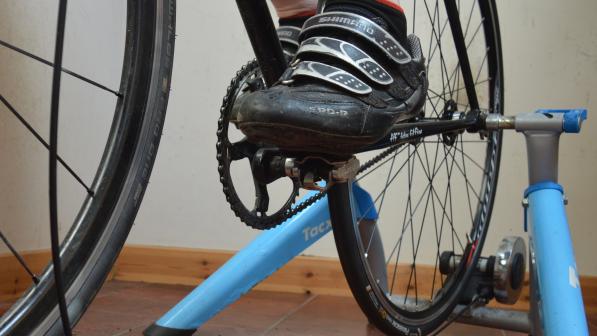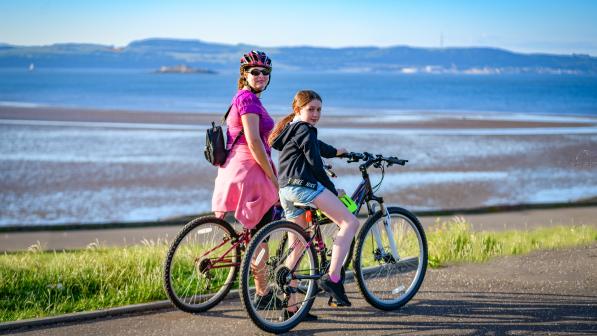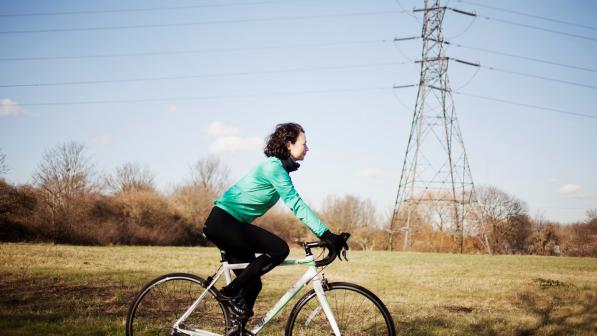How to set smart cycling goals and achieve results

Specific goals get accomplished. Know what, why and by when.
Way back in 2013, those two sentences were the foundation of my own goal setting. Over the previous year, I’d set a bunch of goals and made them happen so I was even more excited for what else I could possibly achieve.
What are goals and why they are important?
A goal is something that you as an individual, or maybe even as a group, set out to achieve. It inspires you to do the work and it excites, or maybe even scares you a little.
When you choose your goals, you should make them SMART: specific, measurable, achievable, relevant and time bound. Take, for example, Cycling UK member Linda, in Woking, Surrey. Her goal is to ride 135km each week, which she adds to when it starts to get too easy.
Is it possible to set yourself the wrong goal?
While speaking to Coach Alison, of Veloqi CC, about training for your first big hill climb, I took the opportunity to ask her about setting cycling goals and whether it is possible to make a mistake when setting them.
“Of course, there are lots of theories around goal setting. I always try to set SMART goals and varied goals. When I say varied goals, I mean things like time commitment, skills, FTP, speed, duration…just have a whole mix.”
How to decide the right goal for you
The key to deciding what goals to pursue, largely comes down to who you are and how you are motivated.
“You've got intrinsic and extrinsic motivations,” says Coach Alison. “You might enter a charity ride to raise money for a cause that’s very personal to you –this is an intrinsic goal. Whereas someone else might train to enter a race where you get a big trophy at the end – extrinsic motivation. It depends on your personality; you need to work out what keeps you motivated.”
If you’re not sure whether you’re intrinsically or extrinsically motivated, think back to a time when you achieved something that made you proud. What was it about that situation that kept you going? Was it the achievement itself? Or was it how it made you feel?
One Cycling UK member who caught the cycling bug is Martha in The Vale of Glamorgan, South Wales. Her initial goal was just to get back into cycling after a six-year break due to Post-traumatic stress disorder (PTSD).
Now she’s back, she has a host of goals lined up for the year, ranging from her current goal of cycling 65 miles in a day, raising funds for the Social Bite ‘break the cycle’ campaign, to an attempt to ride 300km in 20 days or less, raising funds for Breast Cancer Now.
Martha says: “Cycling has had such a huge positive impact on my mental health.”
How your goal can help you to improve your cycling, motivation and fitness
If there’s one thing that should be celebrated, it’s the journey to achieving or aiming for a goal. When you turn up on race day or complete the last 10 miles of your distance challenge, it’s worth remembering all the work that went into getting you there, especially if things don’t quite go to plan.
The journey itself comes with other benefits, like serving as your motivation, improving your cycling technique and also increasing your fitness. For example, if you’re working towards a 30-mile round trip while commuting to work, by working towards that goal you’ll also have learnt about route planning, become more confident on the road, saved some money and improved your cardiovascular fitness.
Cycling UK member Donna, from Staffordshire, chose to ride 500 miles in June for #teambones Bone Cancer Charity after her planned cycling trip to Greece in the same month was cancelled due to the coronavirus pandemic. She shared how she needed something to keep her motivated as she was feeling down about the trip. “It was a win-win,” she said. “Cycling, raising money and the weather was forecast to be nice.”
Tried and tested goals
The main goal I’ve set myself for this year is to create some consistency in my riding. This is how I’ve created more specific and measurable goals.
A few of my recently completed goals include joining a cycling club (I joined Velociposse in London around six months ago), getting a bike fit and completing the Back To Fitness training plan on Zwift.
My goals on the bike for the rest of the year include training to complete a duathlon again, brushing up on my cyclocross skills ready for the winter race season and to (finally) complete the Women’s 100(km) in September on the day, like I’ve said I would for years.
Looking for inspiration?
If you’re looking for inspiration for your own goals, take it from the Cycling UK Community and beyond.
Cycling UK member Ann from York: “I set myself a goal to ride 300 miles in March for charity Cancer Research. The motivation was to get back to fitness and to raise money for a good cause. It was also a Lent challenge, so instead of giving something up, I decided to do something extra.”
Courtney in Essex tells me: “I started time trialling (TT) because my brother did them, but now my own goal is to achieve a 28 minute 10 mile TT race time. There’s nothing like a race against yourself to keep motivated to improve.”
Melissa in Newcastle says: “[My] goal for 2021 is to move from road bike to TT bike by the end of 2021 to help me get my 40km time under 2hrs for standard duathlon. I also have smaller goals, such as aiming for 20km under 50 minutes. I want to get my bike-handling skills to a point where I feel comfortable to go faster and push more power.”
Whether your goal is big or small, it can be a great motivation to get some miles on the bike. If you’re aiming for more performance-related goals, then they can help with decision making – is entering an extra event going to take you one step closer to your goal? Or will it just detract from your specific training?
Whichever you choose, it never hurts to rope in a few friends, too, which is an added incentive to plan that coffee stop in for a chance to catch up. Win-win.





